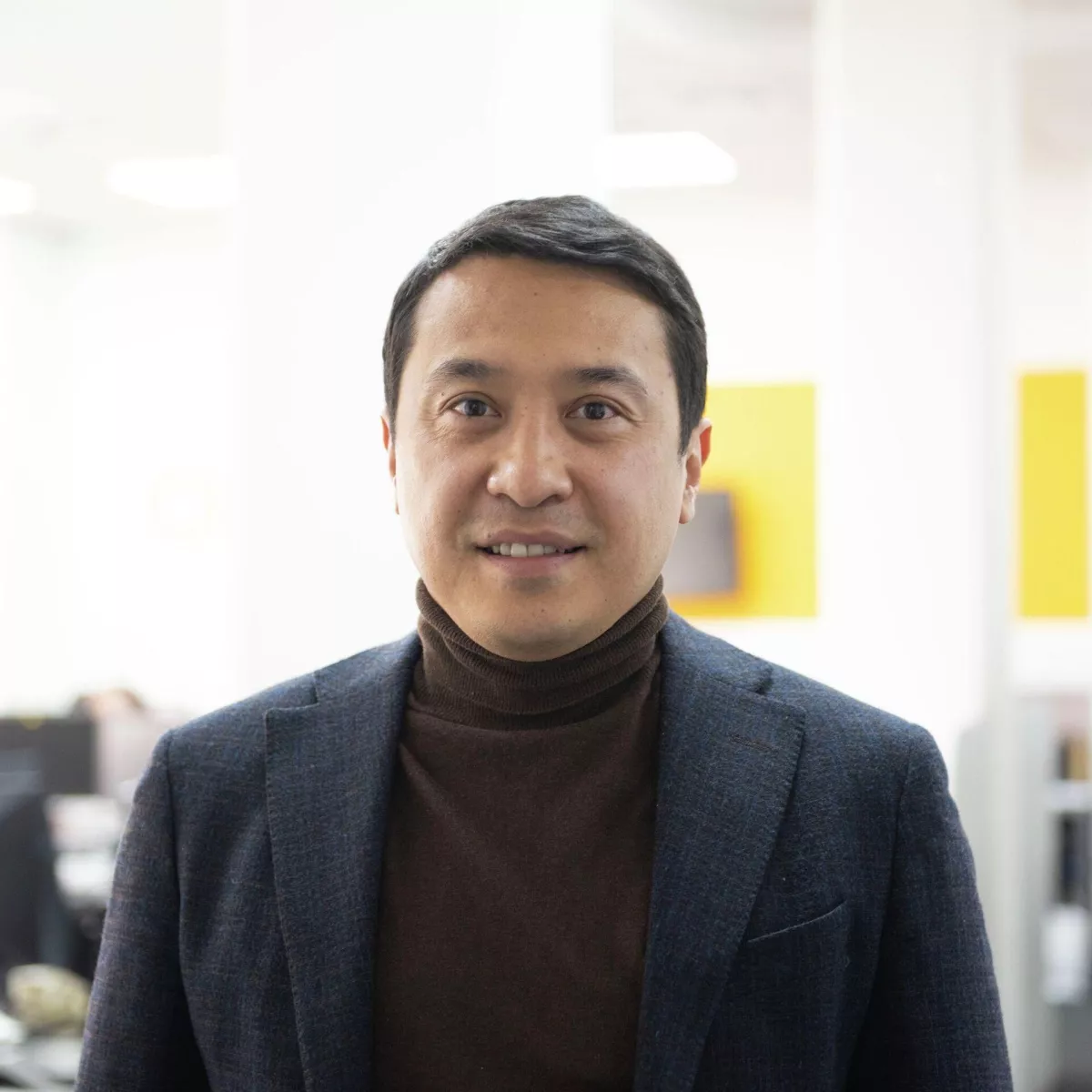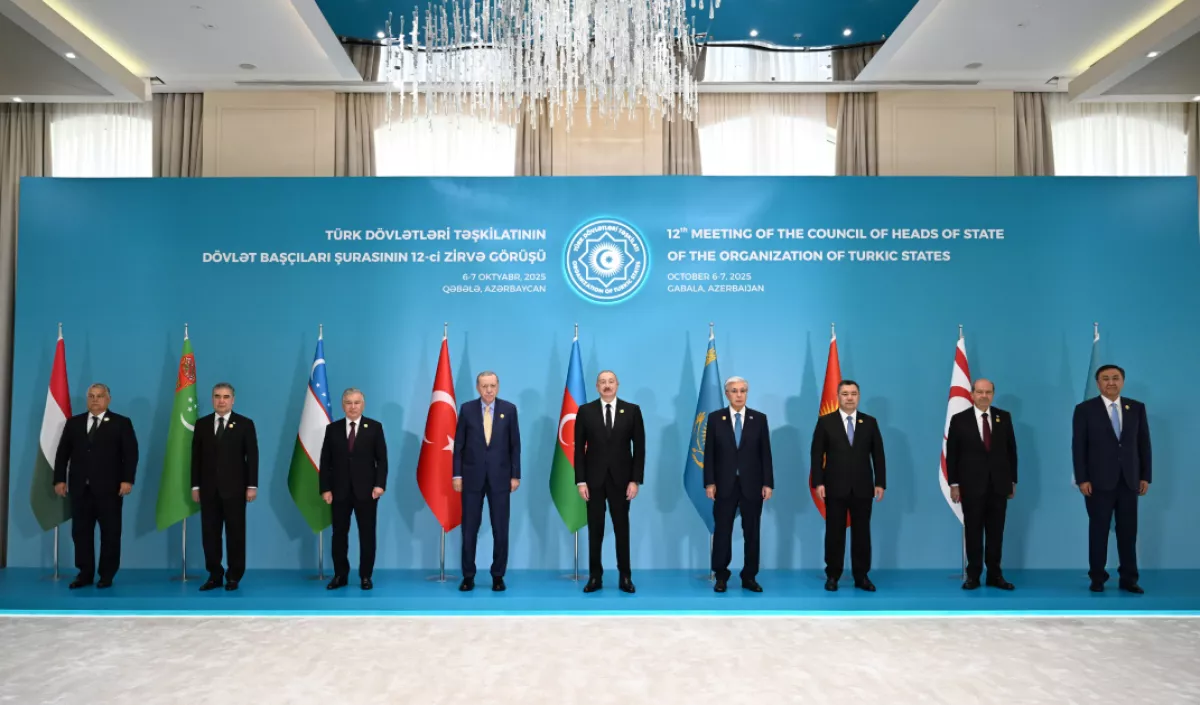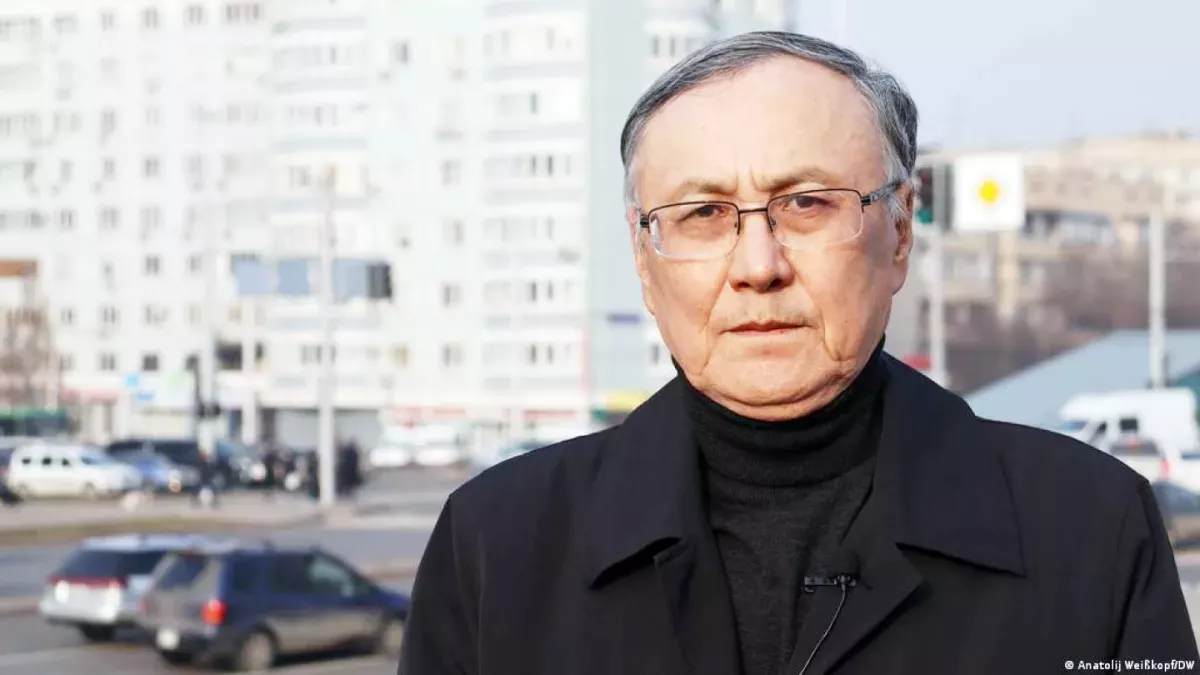Turkic world as new centre of power Expert weigh in OTS Summit
The 12th Summit of the Organisation of Turkic States (OTS), held today in Gabala, focuses on the theme of “Regional Peace and Security.” The summit is set to shape the future direction of the Turkic world, outline its shared strategic goals, and establish mechanisms for coordinated action. Following the summit, the OTS chairmanship will pass from Kyrgyzstan to Azerbaijan.
What challenges does the Turkic world face today, and what are its prospects for further development?
Caliber.Az spoke to international experts to explore these questions.
Kyrgyz analyst and international law expert Zhapar Usenov notes that the world is changing rapidly.

“We live in an era where wars, technology, and politics are intertwined, affecting not only states but also the destinies of individuals. Artificial intelligence is becoming a new tool of influence, while global security grows increasingly fragile with each passing day. In such circumstances, Turkic countries must look toward the future not in isolation, but with a sense of shared responsibility and a common destiny. Today, we are deciding whether we can maintain stability, strengthen our economies, and become an independent centre of power.
The Turkic countries are united not only by language and culture, but also by a shared understanding of their duty to future generations. We see crises intensifying around us, risks and conflicts on the rise. This requires not quick reactions, but carefully considered steps aimed at strengthening trust, economic cooperation, and collective resilience.
The economy is the foundation of any security. Without a strong economy, it is impossible to have a reliable military, a stable currency, or an independent foreign policy. Therefore, the key priorities of the OTS include developing mutual trade, establishing joint industrial zones, and creating energy and transport corridors. We need to move toward tangible investments and production links between our countries,” the international law expert emphasised.
He added that in the 21st century, economic resilience depends not only on resources, but also on the level of technology and the ability to work with data.
“Therefore, the second priority is artificial intelligence and digital sovereignty. Today, AI is becoming not just a tool, but a factor of global influence. Whoever controls the data controls the future. If the Turkic countries do not develop their own algorithms, language models, and analytical systems, they risk becoming dependent on foreign technologies and interests. We need our own research centres, joint technology clusters, and specialist training programmes. This is a new form of independence, where intelligence and technology form the foundation of national security.

The third priority is defence and military security. Modern conflicts show that war is no longer confined to the battlefield. It extends into cyberspace, the information sphere, and the struggle for technological superiority. Turkic countries must strengthen coordination in defence technologies, intelligence, data exchange, and crisis response—not for confrontation, but to protect their peoples and maintain peace in the region.
True resilience is achieved when the economy, technology, and security work together. If the Turkic countries can unite these areas, they will create not just an organisation, but a genuine centre of power—intelligent, economically independent, and peace-oriented.
Today, as the old global centres lose influence, the Turkic world has a rare opportunity to build its own model of development. We can become an example of a region where tradition blends with innovation, and wisdom is combined with technological progress. The key is to maintain trust, act consistently, and treat each other with respect. Then our union will become not only a symbol of unity, but also a reliable foundation for the future, where Turkic peoples take their rightful place in the world,” Usenov emphasised.

Kazakh political analyst Kazbek Beysebaev, in turn, emphasised that we are all witnessing the world changing before our eyes, and a new global order taking shape.
“Some changes occur through force and wars, others through economic instruments. Countries that were recently in secondary positions in the global hierarchy are now moving to the forefront. More and more nations are calling for reforms of international institutions, especially the UN. In this shifting world, the Turkic countries must find their place.
Turkish Foreign Minister Hakan Fidan was absolutely right when he stated ahead of the summit that there is a need to chart a path for strengthening the unity and resilience of the Turkic world in the face of new global crises and challenges. Clearly, this is precisely what the Organisation of Turkic States summit in Gabala is dedicated to.
Of course, these include security issues, the fight against terrorism, and combating illegal migration. Joint measures and coordinated action are needed more than ever in these areas.
The second priority, in my view, is the development of mutually beneficial trade and economic relations. I believe that this will be a key focus of joint work within the OTS,” Beysebaev concluded.








